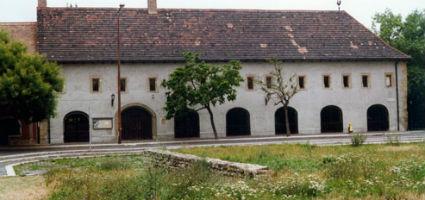2025. December 30. Tuesday
Budapest Gallery Exhibition Hall - Budapest
 |
Address: 1036, Budapest Lajos u. 158.
Phone number: (1) 388-6784
E-mail: info@budapestgaleria.hu
Opening hours: Tue-Sun 10-18
|
The exhibition has closed for visitors.
2022.06.02. - 2022.07.24.
The exhibition’s point of departure is the extent to which our attitude to care has changed in recent years as a result of the pandemic. Exploring the small, even invisible manifestations of caring and how it can extend to the non-human world around us, the exhibition focuses on plants.
A number of artistic strategies are represented in which, through attention to and collaboration with the flora of our immediate environment, a more liveable future for more than just humans gains significance. The former symbolism of plants, flowers and fruits is replaced by current interpretations seeking a way out of contemporary crises.
During the pandemic, several members of generation Y became plant parents and shared experiences of their home jungle or learned about plant care on the transnational platforms of social media. This is related to the isolation-induced endeavour to make our environment more homely while engaging in a regular activity that has a positive impact on our mental health. At the same time, the heightened interest in plants is not just for its own sake; it also provides an opportunity to connect with different communities through past practices worthy of revival and speculations about the future. Time travel into the past is closely linked to questions of colonialism: it evokes, among other things, the use of medicinal plants, often marginalised in Western medicine, early herbaria or the first greenhouses in Europe. Propositions regarding the future are mainly concerned with the notions of moving on and starting over: rethinking the role of invasive species and weeds that were once banished, such works explore self-sustaining practices. Although its title represents the largest unit in the taxonomic classification of plants, while being aware of the power structure of taxonomy, the exhibition is an attempt at rearranging hierarchy.
A number of artistic strategies are represented in which, through attention to and collaboration with the flora of our immediate environment, a more liveable future for more than just humans gains significance. The former symbolism of plants, flowers and fruits is replaced by current interpretations seeking a way out of contemporary crises.
During the pandemic, several members of generation Y became plant parents and shared experiences of their home jungle or learned about plant care on the transnational platforms of social media. This is related to the isolation-induced endeavour to make our environment more homely while engaging in a regular activity that has a positive impact on our mental health. At the same time, the heightened interest in plants is not just for its own sake; it also provides an opportunity to connect with different communities through past practices worthy of revival and speculations about the future. Time travel into the past is closely linked to questions of colonialism: it evokes, among other things, the use of medicinal plants, often marginalised in Western medicine, early herbaria or the first greenhouses in Europe. Propositions regarding the future are mainly concerned with the notions of moving on and starting over: rethinking the role of invasive species and weeds that were once banished, such works explore self-sustaining practices. Although its title represents the largest unit in the taxonomic classification of plants, while being aware of the power structure of taxonomy, the exhibition is an attempt at rearranging hierarchy.